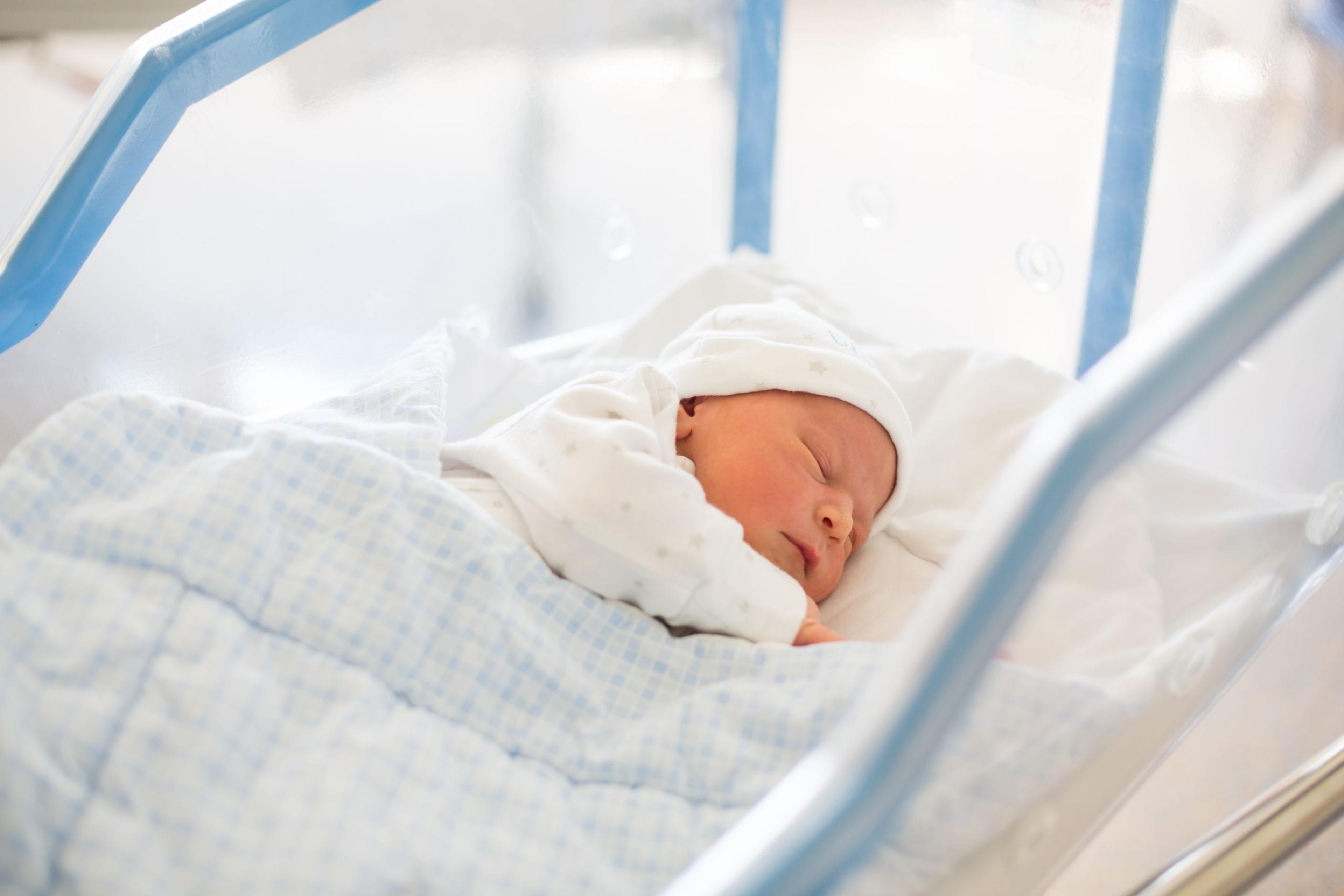Expecting More: For Moms-to-Be with Opioid Use Disorder, Comprehensive Treatment Improves Outcomes
Julie Bitely
| 6 min read

For expectant mothers recovering from or actively battling a substance use disorder, pregnancy can be a dark and scary time. A Grand Rapids program is offering light and hope by treating moms with respect and dignity, streamlining their treatment needs to ensure better outcomes for women and their babies. The GREAT MOMS (Grand Rapids Encompassing Addiction Treatment with Maternal Obstetric Management) program offers support to moms-to-be by helping them navigate their prenatal appointments alongside medication to treat their opioid use disorder. All the appropriate care they need is offered at the same time, in the same place. So far, 25 babies have been born to mothers who have gone through the program. “They helped me with everything,” said Jill*, who delivered healthy twins in July. “They tied everything together. It was amazing, absolutely amazing.” With grant funding support from the Blue Cross Blue Shield of Michigan Foundation, GREAT MOMS operates out of Spectrum Health’s Maternal Fetal Medicine office. The comprehensive program embeds addiction treatment in a prenatal care clinic, with the ability to coordinate with other specialties if needed depending on the unique medical needs of each patient. Postpartum support and treatment are also offered through the program. Dr. Cara Poland runs the GREAT MOMS program. She is one of the first 1,200 American Board of Medical Specialties board-certified addiction medicine specialists in the United States and is the Michigan Chapter President of the American Society of Addiction Medicine. Poland has personally trained more than 500 Michigan prescribers to prescribe buprenorphine products for office-based opioid treatment and trained an additional seven to serve as trainers who have trained hundreds more prescribers. Through GREAT MOMS, Poland said women simply schedule a block of appointments where they can receive care from an addiction specialist, certified nurse midwife and others involved in their care. The appointments may last two to three hours and Poland said it saves women from having to make up to four different appointments in four different locations during a given week – an impossibility for most people, but especially taxing for those in recovery. Women are treated with buprenorphine to help them reduce or quit use of heroin or other opioids. Poland said medication to treat addiction during pregnancy is preferable and produces better outcomes than quitting “cold turkey”. The American College of Obstetricians and Gynecologists recommends that women receive and continue medication to treat their addiction during pregnancy. When left untreated, opioid use disorder during pregnancy is associated with low birth weight, stillbirth, placental abruption and prematurity in infants. “If somebody is actively using opioids, their body is often going in and out of withdrawal and withdrawal is a physical stress on the body and that results in stress on the baby,” Poland said. Babies born to moms taking opioids during pregnancy are at risk for neonatal abstinence syndrome (NAS), which includes symptoms such as body shakes, excessive crying, fever, diarrhea and breathing problems that are caused when the baby goes through withdrawal. NICU providers treat these symptoms to prevent the baby from suffering during this period. According to the Michigan Prescription Drug and Opioid Abuse Task Force Report of Findings and Recommendations for Action, the average hospital costs for an infant born with NAS is $66,700, compared to $3,500 for an infant born without NAS. Moms who are consistent with medication during pregnancy can significantly reduce their child’s risk for NAS, although infants born to mothers engaged in opioid-based forms of medication management are still closely monitored after birth and do stay in the hospital longer to monitor for NAS. Watching her babies suffer after birth was one of Jill’s biggest fears during pregnancy. About 47 percent of babies born to moms on buprenorphine will experience some amount of withdrawal. Jill’s babies were thankfully born with nothing in their systems. Their hospital stay was longer than a typical newborn’s, but they were healthy. “‘Thank you’ doesn’t even begin to express my gratitude to (GREAT MOMS),” Jill said. After a life filled with upheaval, including many periods of sobriety and recovery, losing custody of previous children due to her history with opioid use disorder, Jill desperately wanted this pregnancy to be different. She knows all too well the stigma and stereotypes that faced her. In the GREAT MOMS program, she felt accepted and comfortable. She was able to be completely open and honest about her history with heroin use. She didn’t have to schedule multiple appointments at different places – she just had to show up on Wednesday mornings to have all her needs met. She explained that for her, stability and consistency help her manage urges to handle stress in unhealthy ways. “I need that stability,” she said. “Here, I was able to get that stability. I was able to get that support.” Poland said women who enter treatment during pregnancy tend to have higher rates of compliance with prenatal care and their babies need fewer medical interventions after birth. On average, six-week postpartum checkups are adhered to by only about 40 percent of women. The rate of compliance for GREAT MOMS is 95 percent. Long-term, babies born to moms taking medication to treat an opioid use disorder do well, Poland said, typically without lasting complications. To ensure that more women throughout Michigan can access the type of comprehensive treatment available through GREAT MOMS, personnel are working to develop a toolkit with key recommendations, resources, check-lists and more for general obstetrics practices. They’re planning to pilot the toolkit in 2019 and make it publicly available in mid-2020 for distribution. That way, women in more rural areas of Michigan or elsewhere will hopefully be able to receive the same type of care Jill did. For Jill, life isn’t perfect, as it isn’t for most new moms adjusting to a new normal. Still, she and her husband are optimistic about the future. They’re running two businesses and she said she has “a different perspective on life.” She also knows the GREAT MOMS program is still a resource she can turn to. “The best part is knowing that I had that support with the program and they’re still there,” she said. If you’re interested in the GREAT MOMS program as a patient or as an obstetrician wanting to participate as a pilot site for the toolkit that’s being developed, get in touch by calling 616-391-3681. *To protect her privacy, we agreed to use a pseudonym for this GREAT MOMS participant. Interested in learning more about the opioid epidemic in Michigan? Read these posts:
Photo credit: tatyana_tomsickova





